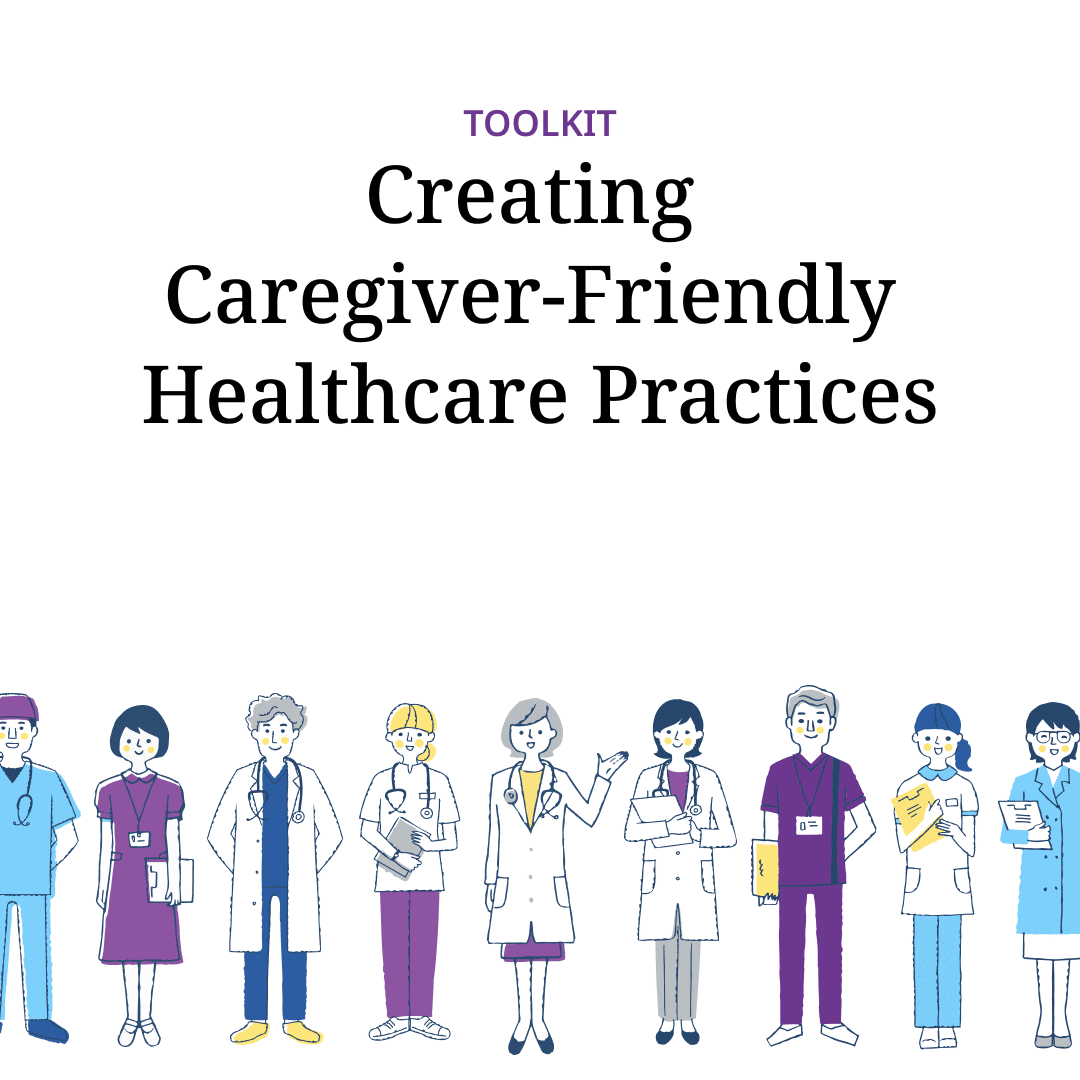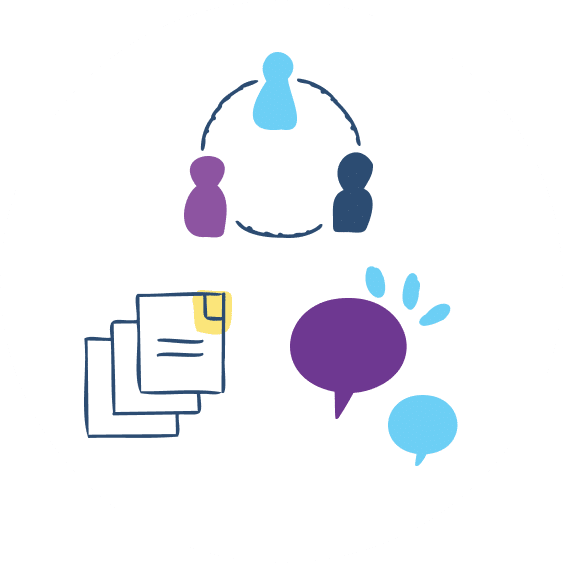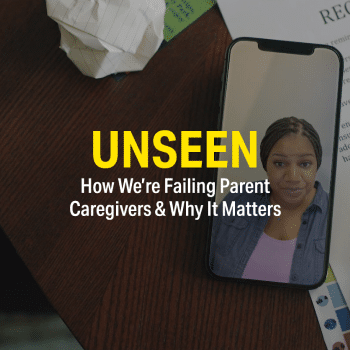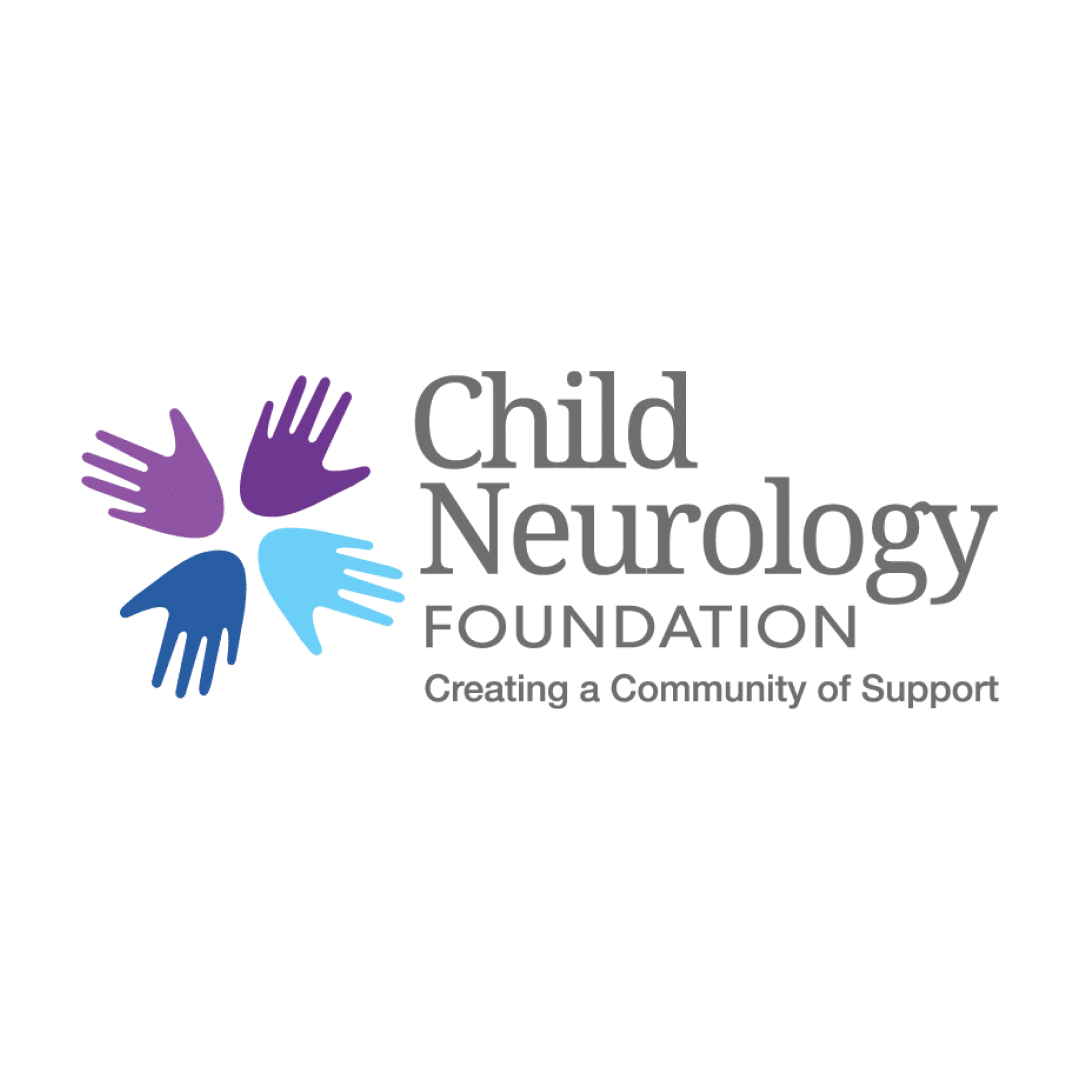
Explore the Caregiver-Friendly Healthcare Practices Toolkit
Learn how healthcare providers can improve outcomes by recognizing and equipping caregivers.
Caregiver-Friendly Healthcare Practices Toolkit
Created in partnership with

Caring for patients with disabilities and complex medical needs and their families poses unique challenges to clinicians. An individualized, family-centered approach is often necessary because treatment decisions can affect more than just the client.
We asked caregivers about what they wish healthcare providers understood about their life and their family. Their responses are compiled below, spotlighting themes that offer valuable insights that clinicians can use to guide their practice and care plans.
“Healthcare providers have never discussed the impact [caregiving] has on me.”
“I always share about being a caregiver at my doctor’s appointments. Even if they don’t know or bring it up, I make sure I do. I know the constant lack of sleep and stress really puts a toll on my body. I get a lot of headaches and tension and back pain from the lifting. I don’t make time for myself to exercise like I should and eat foods out of convenience. Practitioners should know what our life is like and how it’s impacting our health.”
“I have told [my doctor] that I care for my adult disabled child and that this is a factor in my being able to attend appointments.”
“My providers haven’t talked to me about how being a caregiver impacts my overall health and well-being.”
“Honestly they never ask so I don’t share.”
“It’s never part of the conversation. And I have a trusted doc who is excellent at so many things.”
“I do share with my son’s physicians. Honestly they never have time to discuss beyond immediate needs of their patient.”
“My son’s care team spans multiple states. He can only be driven in his wheelchair in our accessible van…We pay thousands of dollars per year in parking fees, tolls, gas, and extra vehicle maintenance to get to all of these ‘required’ appointments. I’m told we need to be seen [by the clinician] for three separate appointments (ex. consult, procedure, and post-procedure) when two of those three could have been virtual.”
“I wish they’d have blocks of early and late appointments for older kids so we wouldn’t have to keep pulling our kid from school multiple times a week.”
“I appreciate the [clinicians] who call personally, and the ones who offer to make appointments virtual whenever possible.”
“While [the doctor] is only asking for one test, one appointment, one food log, etc., they are one of a dozen providers who are all asking for that. There’s no way I’ll ever be able to do all of that.”
“My son’s providers make recommendations with only my son in mind — and understandably so — but I also need to consider myself and my family in my decisions.”
“Every member of the family carries this burden in some aspect or another. It has deeply affected our relationships, anxiety levels, and overall well being.”
“I do not share my struggles because I am not given an opportunity to talk out of the presence of my child.”
“[There is] isolation around caring for a chronically disabled child.”
“I find that most [doctors] don’t understand and feel that it is useless to try and explain.”
“I do share about my caregiving….but…they see you wanting a pity party or a pat on the back. None of them seem to understand the toll it takes on one’s life, their mind, their body or their soul.”
“[Clinicians] talk as though I don’t know anything.”
“I get it, [clinicians] don’t know me, my education level, or the amount of time I have spent researching conditions and issues—but man, talking as if I don’t already have an understanding is frustrating.”
“[It helps] when they listen without judgement. When they take notes, research and are open to new ideas and procedures.”
“Acknowledge that I know my child best and treat me as an equal member of the team.”
“It is not the same as neurotypical [parenting]. Everyone always compares it and says ‘Well, I was tired, too.’ But [caregiving] is a new level of ‘tired’ and a lot of stuff isn’t going to go away. We have to learn how to handle it all.”
“[Caregiving] is way harder than they can imagine.”
“It is overwhelming at times.”
“Fear around [my child’s] future is heartbreaking.”
“It feels nearly impossible to take time for myself.”
“Daily life is a heavy burden. [There’s] no time for self-care as a carer.”
“I’m an expert [at caregiving]. If there was an easy answer I’d have already done it.”
“Many of us don’t have a support system to watch our loved ones when we need to go to the doctor or even if we need to have surgery.”
“Family and friends drop off because it’s too hard.”
“I wish [doctor’s] had a greater understanding of how much our physical and emotional energy is spent on caring for our children and that leaves so little left for ourselves. It isn’t a simple matter of ‘self-care’ and accessing ‘resources’ or family members for support, as the reality is there often are no resources and family might be no where nearby or completely unable/willing to care for our children even briefly.”
“We have a case manager through our specialty clinic but they are so understaffed, she’s rarely available.”
“Have resources with all the information we may need about all the diagnoses our child has and about future things we may need for their care all in one place.”
“Give us better resources, [ideally] all information in one place.
”[Caregiving] is a full-time job…We are not making excuses…We shouldn’t have to fight for services that help [my daughter] get through her daily life. We are forever having to prove this or prove that…It is exhausting and just makes us more depressed as we constantly feel like we have to fight for support for her.”
“We are always doing our best but many [caregivers] do not get to all the things we want to or should do.”
“We are 100% committed and dedicated but we have limited resources.”
“[Clinicians] have a team but all I have is me — without all their knowledge, supplies, and resources.”
“We are trying our best. Try not to judge.”
“Listen. Call me. Return calls. Talk through my concerns.”
“I need providers [who] really listen and take time to understand, who try to come up with solutions to alleviate some of the stress.”
“We appreciate it when we find a healthcare provider who listens to us and takes our concerns seriously and doesn’t give up on our child like others have.”
“Please ask if I’m OK.”
“I appreciate when [doctors] take their time and not rush through our visits and seem genuinely concerned about our issues. When we return for the next visit, they have actually taken the time to read up on things I brought to their attention during the last visit.”
Here are ways you can get started:

Learn how healthcare providers can improve outcomes by recognizing and equipping caregivers.

The “Unseen” documentary gives an unfiltered, honest glimpse into the lives of caregivers and their families.

The Child Neurology Foundation connects partners from all areas of the child neurology community so those navigating the journey of disease diagnosis, management, and care have the ongoing support from those dedicated to treatments and cures.

Sign up to get notified about upcoming screenings, new bonus content releases, and get a 10% off coupon for our mech store!